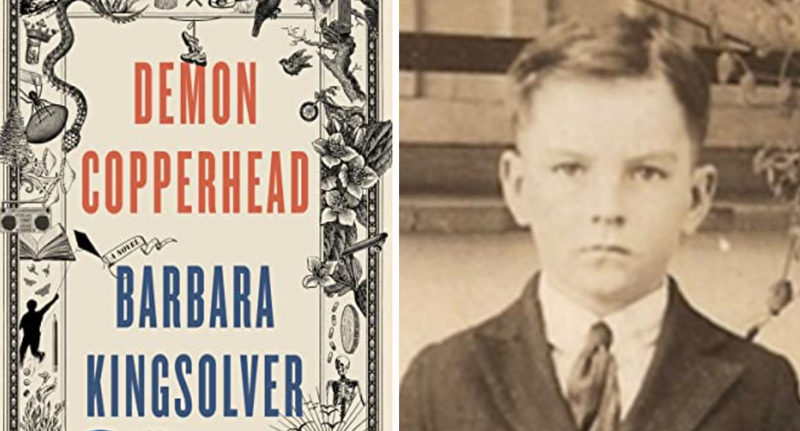Turning the last page of Kingsolver’s massive new book left me struggling to re-enter the life I’m living, here in the upper left corner of this nation. I’d been down in Kingsolver’s southwest Virginia for days, evenings, sometimes on into the wee hours, captivated by Demon, her voice on these pages, an 11-year-old when he begins talking to you, a kid trapped in inland poverty, yearning for the sea.
Pulling myself out of his world, looking out at the Salish Sea, I’m struck by a sudden presence. Dad? What are you doing here? And why? Then I got it. After not thinking of him even once during the days I spent with Demon.
Frank Medlock went into the Carolina mills at 13, becoming a “linthead” like his dad, like his grandfather. But he ran away to sea at 16, taking one of the only ways out that poor kids have always had—enlist. Volunteer to kill people you don’t know, hoping you don’t get killed yourself.
He was smart, curious, quickly learning the ways of the world—and that he must never sound southern. “If you talk like that, people think you’re stupid.”
Kingsolver’s Demon howls in anguish about that very perception, one that I’ve shared, along with so many other city people, northerners, westerners, New Englanders. Demon’s intelligence, abilities and talents will shatter the redneck stereotype I’m betting you have in your mind.
He tells you about the people around him—full-fledged beings, in all their infinite possibilities. He shows you the complexities of their lives, the questions they want answered, the hopes that drive them, the road blocks they crash into, the despair that can drive some of them to escape into oxy oblivion. The beauty there, the creeks, trees and hills, are often Demon’s only solace, and they fuel his pity for those who must survive surrounded by artifice—concrete, glass and asphalt.
I’ve spent my life grateful to my dad for lighting out from the mill town that was so like the place where Demon lives, although it’s not as beautiful. Dad forged a life that put me and my brother on the coasts, not landlocked in a valley of poverty, as Demon is.
Mill towns were gutted, their resources extracted, as were the mining towns Kingsolver describes. The land and its people were just means to others’ ends, to maximum profits going north. When even more money could be made elsewhere, mines and mills were abandoned, miners and mill-hands all stranded and seeking ways to go on, a difference being whether they had black lung or white—coal and cotton both kill those who work them, to enrich the lives of others.
And my dad went back. After decades of seeing all the world had to offer, he went back, to that damn shuttered town. I may finally understand why my father made that astonishing move, now that Kingsolver has let me hear Demon.
Graying, sounding like a Yankee, Dad was home from the sea, back to honeysuckle and butter beans and porch swings on hot summer evenings, to people who deserve the respect of their fellow Americans, people who talk as he did, before he made himself sound—to the world—as smart as he was.
And he was happy. I’m still thanking him for running away to sea, but now I apologize for not understanding how much it cost him to do that, and how he’d longed for home.
Thank you, Barbara Kingsolver for Demon's clear, strong voice. I heard you, and him. And then I heard my dad.

